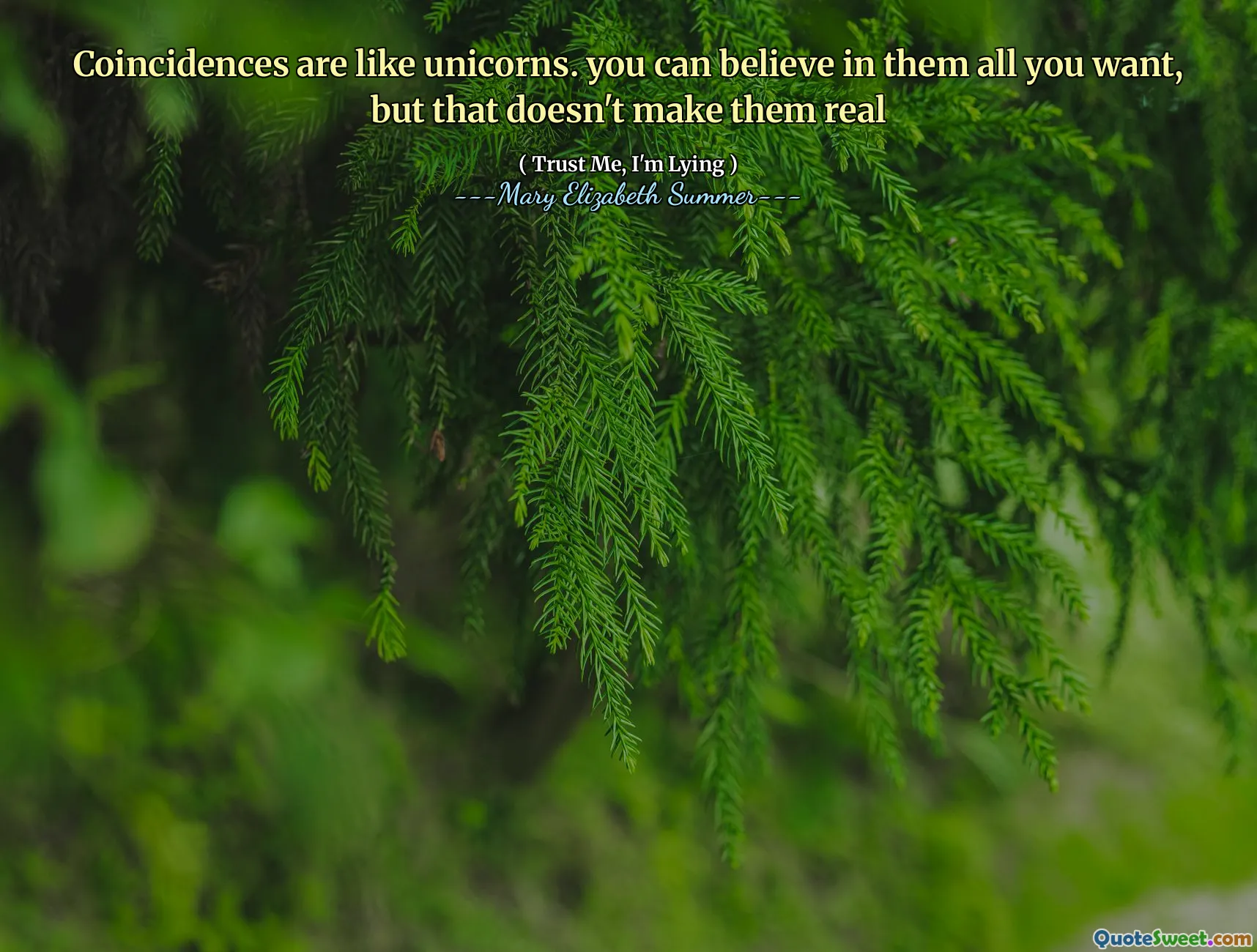
Coincidences are like unicorns. you can believe in them all you want, but that doesn't make them real
This quote presents an intriguing perspective on the nature of coincidences and our perceptions of them. It suggests that many of us tend to see patterns or meaningful connections where none objectively exist, much like believing in unicorns—creatures that, despite widespread imagination, have no basis in reality. Our minds are wired to find connections and create narratives, which can lead us astray when interpreting random events. The tendency to see coincidences as meaningful can be both comforting and misleading. Sometimes, we seek significance in chance encounters or events because they align with our desires or fears, providing a sense of order or reassurance in a chaotic world.
From a psychological standpoint, this reflects cognitive biases such as apophenia—the human tendency to perceive meaningful patterns within random data—and confirmation bias, where we focus on information that supports our beliefs while dismissing contrary evidence. Recognizing this tendency is crucial because it empowers us to approach situations more critically and avoid jumping to conclusions based solely on coincidences.
Moreover, understanding that coincidences are often just that—chance occurrences—can encourage a more rational and grounded view of the world. It also fosters humility, reminding us that not everything has a hidden meaning or causal connection, even if our instincts tell us otherwise. Embracing this perspective can help temper superstitions or unfounded beliefs, leading to more informed decision-making. While it’s tempting to read into coincidences, cultivating awareness of the distinction between chance and relevance allows us to navigate life more thoughtfully, appreciating genuine opportunities and connections without overly attributing significance to every random event.






